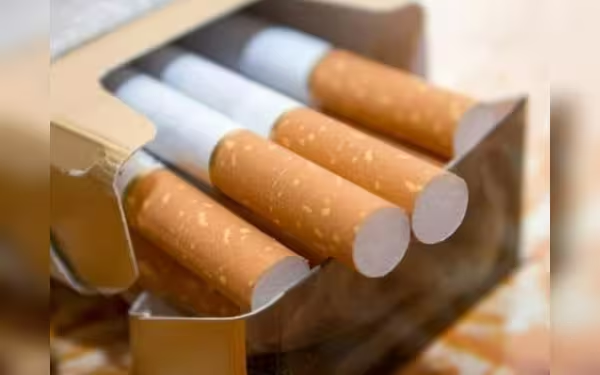Sunday, July 7, 2024 12:34 PM
SPARC lauds SIFC for tobacco tax hike proposal
- Proposed 26% tax increase on cigarettes to generate PKR 17 billion revenue
- Advocates emphasize benefits of higher tobacco taxes on public health
- Tax hike aims to reduce tobacco consumption and healthcare costs
 Image Credits: urdupoint
Image Credits: urdupointSPARC commends SIFC for proposing a 26% tax increase on cigarettes to boost revenue, combat youth smoking, and reduce healthcare costs in Pakistan.
In a recent development, the Society for the Protection of the Rights of the Child (SPARC) has praised the Special Investment Facilitation Council (SIFC) for their efforts in promoting wise economic choices. One of the key suggestions put forward is the proposal to raise taxes on non-essential items, particularly targeting tobacco products to boost the economy. Health experts are optimistic about the potential impact of a planned 26% tax increase on cigarettes in the upcoming 2024-25 budget, which could result in generating PKR 17 billion in revenue and a projected 19.8% decrease in long-term healthcare expenses.
Advocates like Malik Imran Ahmad from the Campaign for Tobacco-Free Kids (CTFK) highlight that higher tobacco taxes not only have the potential to increase government income but also to combat the high prevalence of smoking among young people in Pakistan. With 64% of the population under 30 years old and around 1200 children taking up smoking daily, there is an urgent need to shield future generations from the dangers of tobacco addiction.
The proposed tax hike could inject billions of rupees into the national coffers, allowing for investments in critical sectors such as healthcare and education. By reducing tobacco consumption, the strain on the healthcare system, which currently witnesses approximately 166,000 tobacco-related deaths each year, could be lessened. Dr. Khalil Ahmad, a program manager at SPARC, stresses the significance of making sustainable economic choices to protect Pakistani children and fortify the country's long-term financial stability.
Increasing tobacco prices through taxation has proven to be an effective method in discouraging youth from smoking. By making tobacco products less affordable and attractive to young individuals, such measures can dissuade new smokers from starting and aid current smokers in quitting.
The move to raise taxes on tobacco products in Pakistan not only holds promise for boosting the economy but also for safeguarding the health of the nation's youth. By implementing such measures, the government can not only enhance its revenue streams but also work towards creating a healthier and more prosperous future for all Pakistanis.













